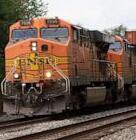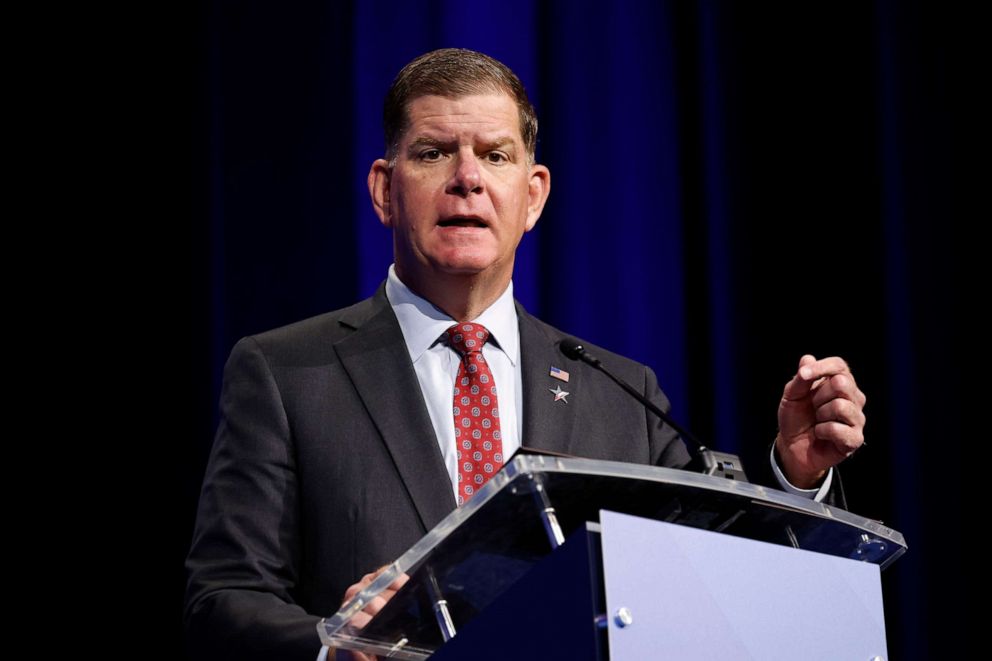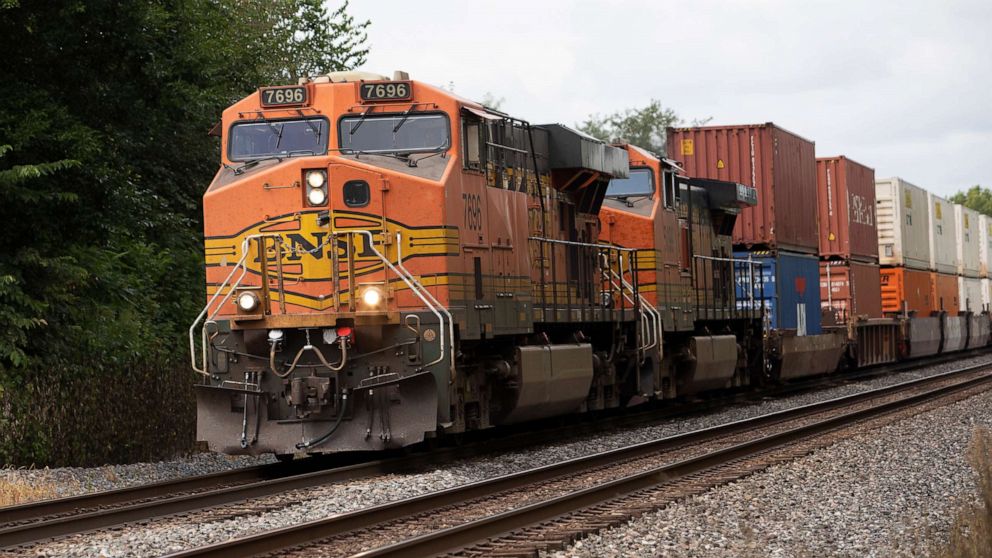
Looming railroad strike could cripple US economy, transportation
A major railroad strike is looming that could paralyze the nation’s supply chain and transportation rail service if both sides don’t come to an agreement by the end of the week.
Unions said workers are seeking improvements to working conditions, accusing rail companies of penalizing workers for taking time off for medical reasons. The unions said rail companies are jeopardizing the nation’s economy to force a deal.
The National Carriers’ Conference Committee (NCCC), which represents the nation’s freight railroads in national collective bargaining, said rail employees are provided “significant” time off and that the companies have offered a fair contract that Adidas Yeezy Boost includes a significant wage increase.
While 9 unions have reached tentative agreements, ongoing negotiations with two holdouts could lead to a strike as early as 12:01 a.m. on Friday, as the cooling-off period under the Railway Labor Act ends and strikes become legal.
Labor Secretary Marty Walsh is meeting with rail company officials and union leaders on Wednesday to help them reach an agreement, White House press secretary Karine Jean-Pierre said on Wednesday.

The two holdout unions — the Brotherhood of Locomotive Engineers Trainmen, or BLET, and the SMART Transportation Division, or SMART-TD, represent 57,000 engineers and conductors, who make up roughly half of all rail workers.
Approximately 4,900 rail workers with a third holdout union — the International Association of Machinists and Aerospace Workers (IAM) District 19 — turned down a deal with the NCCC and will strike in two weeks should an agreement not be reached with rail companies, the union said Wednesday.
“The artery of the US economy is the rail system. It’s one of the ways we get everything around. One third of everything gets around this way. And when you cut it, you have a stroke,” Diane Swonk, chief economist at global tax firm KPMG, said in an interview with ABC News.
A potential strike could lead to $2 billion a day in lost economic output, according to the Association of American Railroads, which lobbies on behalf of rail companies. Freight railroads are responsible for carrying 40% of the nation’s long-haul freight and a work stoppage could jeopardize these shipments.
“The railroads are using shippers, consumers and the Newly Jordans supply chain of our nation as pawns in an effort to get our Unions to cave into their contract demands knowing that our members would never accept them,” BLET and SMART-TD said in a joint statement on Sunday.
The NCCC urged the unions to accept a deal.
“It is critical that the remaining unions promptly reach agreements that provide pay increases to employees and prevent rail service disruptions,” the NCCC said in a statement on Tuesday.
The potential impact for Americans
Should a strike happen, Americans will feel the effects in their wallets, Swonk said.
“It means everything from the potential for layoffs — at the same time that prices are going to continue to rise and you’re going to see more empty shelves in your store,” Swonk said.
Rail is critical to the entire goods side of the economy, including manufacturing, warehousing, retail and agriculture. According to economist Mark Zandi, if there is a rail strike of more than three to four weeks, prices of goods, which have come down from a June peak as supply chain stresses ease and help to bring down inflation, would likely jump again, further exacerbating inflation.
“We already have an economy that’s slowing and inflation that’s persistently high — that’s a bad situation to be in. To add this extra layer where we could see an acceleration in some prices and an inability to get some goods entirely because they’re no longer available, that’s a very, very bad place to be,” Swonk said.
In recent days, urgent calls for a resolution have come from trade groups representing manufacturers, retailers, oil companies and even beer sellers.
Amtrak announced Wednesday it will cancel all long-distance trains starting Thursday, as the negotiations continue and the Friday deadline to avoid a strike nears.
While Amtrak and its workforce are not involved in negotiations, it had already begun “phased adjustments” to its service in preparation for a possible freight rail service interruption.
The company said such an interruption “could significantly impact intercity passenger rail service.”
Talks between unions and rail companies ongoing
Unions still at the table are continuing to call for better time-off policies for their workers. And as the Friday deadline looms, government officials are stepping in.
The railroad companies routinely penalize workers for taking time off for sickness or a doctor’s appointment, BLET and SMART-TD said in a statement on Sunday.
“No working-class American should be treated with this level of harassment in the workplace for simply becoming ill or going to a routine medical visit,” the unions said.
The unions said these policies have forced “thousands of employees” out of the industry and make it “impossible” to recruit new workers.

A presidential emergency board, assembled last month by the Biden administration, issued recommendations for a compromise between the unions and rail companies. The recommendations included a 24% raise from 2020 to 2024 and bonus increases, but they omitted the union’s demand for a new time-off policy.
“Rail employees are provided with significant time off,” the NCCC says on its website. “The unions proposed that the PEB recommend additional paid sick time, and the operating craft unions also proposed that the railroads’ existing attendance policies be voided until new ones that must be negotiated with the unions can be reached.”
“The PEB, however, recognized that the railroads’ rights to unilaterally establish and modify reasonable attendance policies has been acknowledged for years,” the NCCC said.
The IAM District 19 union, which rejected a tentative agreement with the NCCC, agreed to push its strike to Sept 29 “out of respect for other unions in the ratification process.”
President Joe Biden called both union and rail company officials Monday, Jean-Pierre said.
“We have made crystal clear to the interested Danner Outlet parties the harm that American families and businesses and farmers and communities would experience if they were not to reach a resolution,” Jean-Pierre told reporters.
A Department of Labor spokesperson said, “Secretary Walsh continues to lead discussions at the Department of Labor between the rail companies and unions. The parties are negotiating in good faith and have committed to staying at the table today.”
House Democrats on Wednesday expressed cautious optimism that negotiators will reach agreement to prevent a nationwide railway strike.
House Speaker Nancy Pelosi told reporters that members of Congress and the White House are heavily involved in the talks and attributed the current disagreement with unions to the lack of sick leave for railway workers.
But she and other Democratic leaders stopped short of calling for Congress to pass a bill — they want the negotiations to work themselves out.
Republican Sens. Roger Wicker of Mississippi and Richard Burr of North Carolina introduced a resolution Monday that would end any potential strike and impose the recommendations of the PEB.
Comments (0)